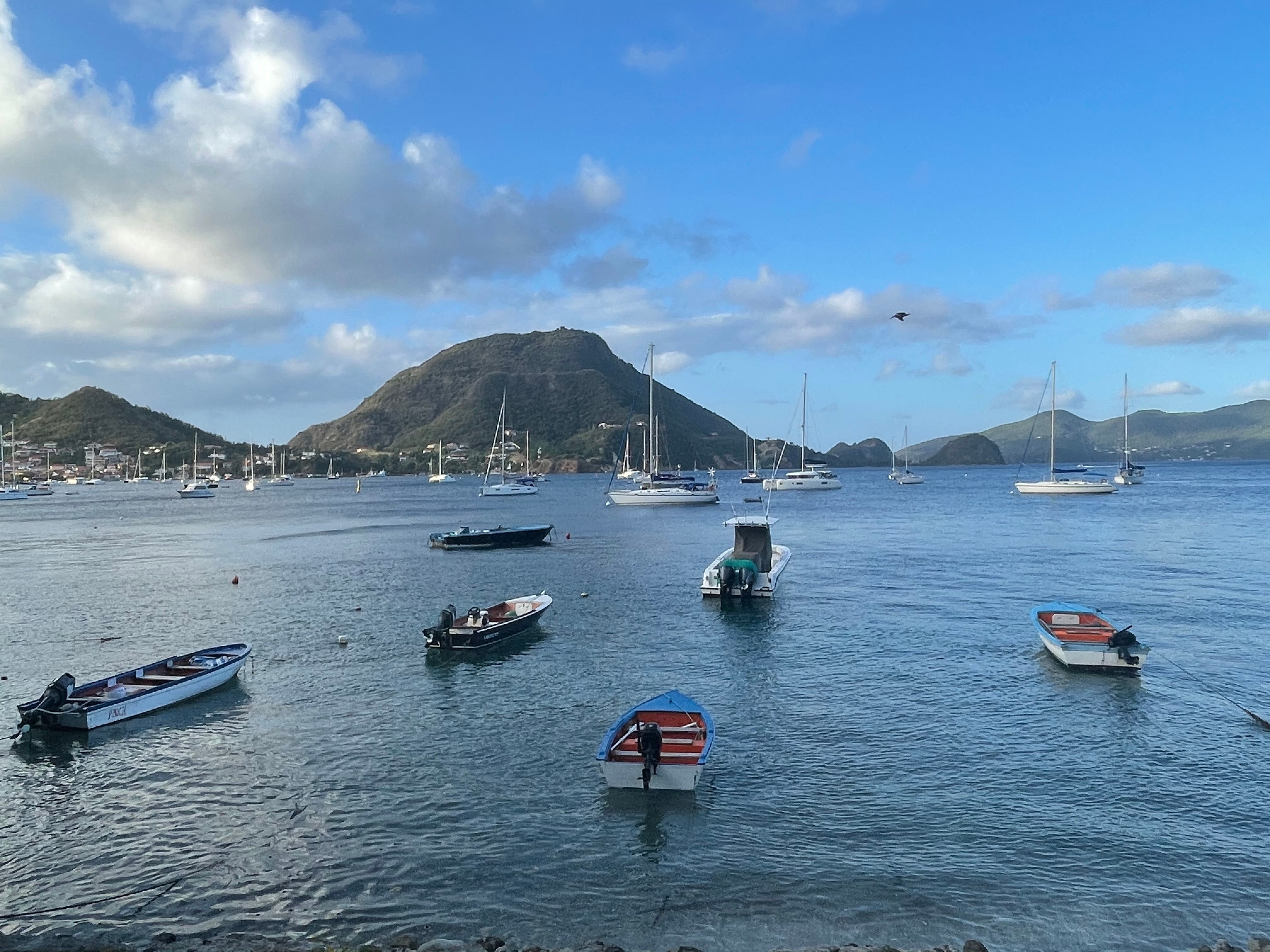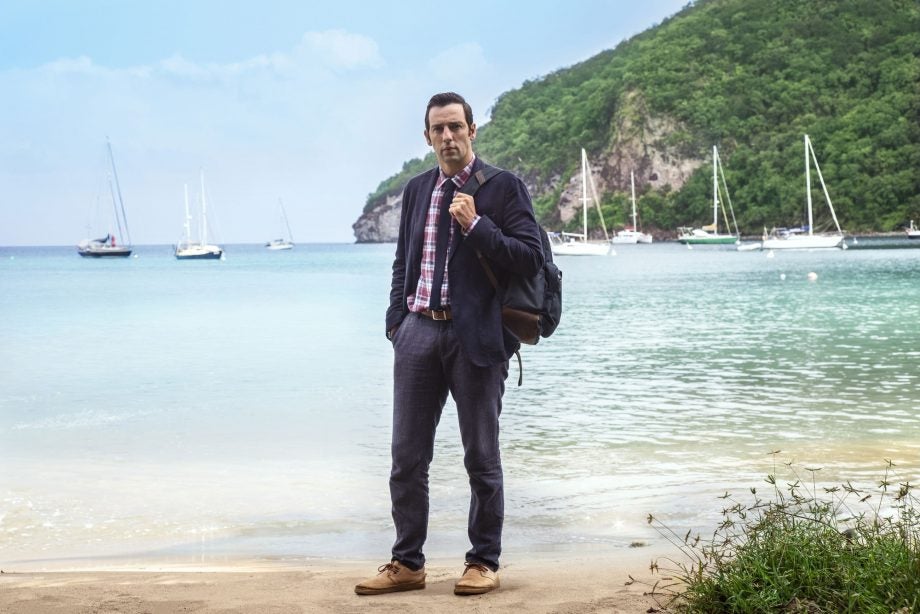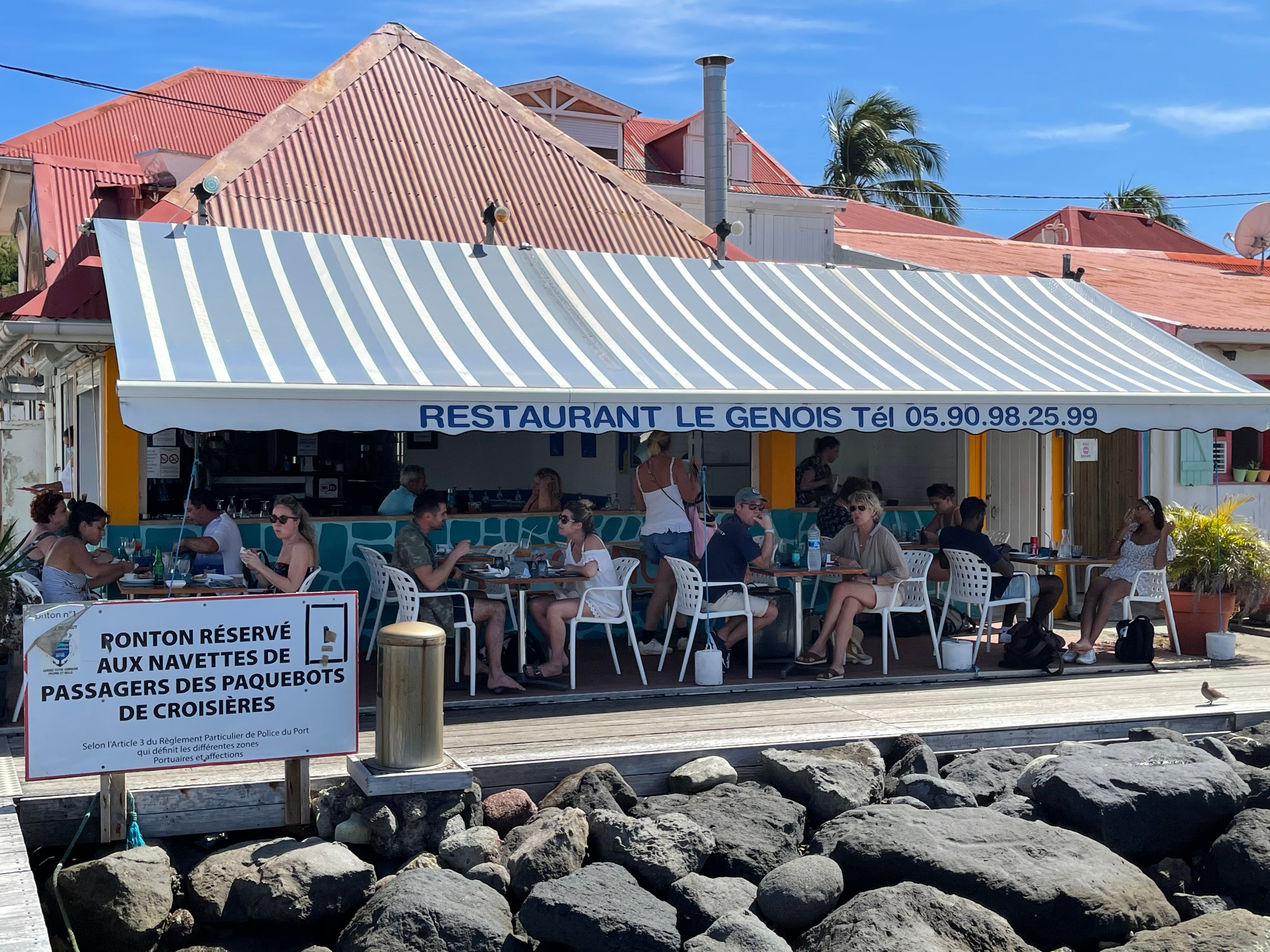Virus in paradise: France ends mass tourism to Caribbean bolthole famous for BBC show
Tourists have been jetting into the tropical idyll where the BBC hit ‘Death in Paradise’ is filmed. But the good times are about to end, Rory Mulholland reports from Guadeloupe.


It’s 1pm on a gloriously sunny Friday afternoon and Le Genois restaurant is doing a brisk lunch trade. Customers eat and drink in the quayside shade, as gentle Caribbean waves lap the shore and the thermometer reads a balmy 28C. Pleasure and fishing boats dot the deep blue bay, and on the hazy horizon looms mainland Guadeloupe, with a cloud hanging as ever over La Soufrière volcano.
The restaurant is on the Iles des Saintes archipelago which lies just off Guadeloupe, one of France’s far-flung overseas possessions which between them are home to nearly three million people. It’s far closer to Caracas than it is to Paris, which lies nearly 7,000km away. But Guadeloupe, where Creole is the main language and cock-fighting a legal and popular entertainment, is officially as French as Normandy or Provence.
Yet, unlike mainland France, Guadeloupe has not been slapped with a 6pm curfew, nor have its restaurants been forced to close. Mask-wearing aside, life goes on pretty much as it did before the Covid-19 pandemic struck. That happy situation is, however, about to come to an abrupt end.
Because infection rates were far lower here than elsewhere in France, where the Covid death toll now stands at 75,862, local authorities decided to keep restaurants open and not to impose a curfew. And they let tourists, most of them French, come in their tens of thousands for some winter sun and escape from the grimness of life in the métropole, as mainland France is referred to here.
Guadeloupe, whose economy is heavily dependent on tourism, was shut down last March for a couple of months, as was much of the world, as the virus raged and spooked governments scrambled to keep it in check. But after that the islands got back to some sort of normal, tourists returned, and the October lockdown was not enforced here.
“I would say that we lost about 50 per cent of normal revenues from tourism in the year to last November,” said Hilaire Brudey. He is the mayor of Terre-de-Haut, one of the two inhabited islands of the eight that comprise the archipelago described by the Lonely Planet guide book as “quite possibly the loveliest place in the whole of Guadeloupe thanks to its Norman architecture, sophisticated restaurants and a backdrop of high, thickly forested hillsides”.
The islands, originally named Los Santos by Christopher Columbus after he and his crew were the first Europeans to arrive here, still manage to remain authentic despite the huge number of tourists who visit. Goats and chickens run around the side streets, and pelicans perch on the wooden fishing boats pulled up on the sandy beaches.
Mayor Brudey said that about 300,000 people – including those staying in hotels or rented accommodation, daytrippers from Guadeloupe, and cruise ship tourists who disembark for a few hours – visit Les Saintes in a normal year. The 2020 figures for the islands, which have a permanent population of around 3,000, are not yet available but are likely to be way down, despite the fact that the island has had only 10 Covid cases, Brudey told The Independent.
Life, and business, got back to almost normal from mid-December, the start of the high season in Guadeloupe, which is where the hit BBC murder mystery series Death in Paradise is filmed. When the French government decided to order ski resorts to shut their ski lifts (but allowed them to keep hotels open), many French decided they would look to one of the overseas departments for their winter break.
These include Guadeloupe and Martinique in the Caribbean, and La Réunion in the Indian Ocean. Local newspapers gleefully reported that 100,000 tourists arrived in the French Caribbean over the Christmas holidays, and the numbers remained high in January. Some worried that the influx would bring more infections. But most were happy that money was still coming into the overseas regions where poverty and unemployment are far higher than in the métropole.

“Last year was pretty bad, but we’ve had a very good month and a half since the middle of December,” Carole Molza, who runs Le Genois restaurant on Les Saintes, said on Friday as she took a quick break from serving hungry lunchtime customers.
The eatery was abuzz with tinkling wine glasses, laughter, and competing conversations, sounds that are but a distant memory for most people back in mainland France, where the coronavirus has left bars and restaurants shuttered for months and where winter only adds to the general gloom.
Molza’s business was also set to do well during France’s two-week school holidays in February.
But “disaster” is now about to strike. That is the word both she and the mayor of Terre-de-Haut used to describe the likely impact of tougher new anti-Covid measures for the French Caribbean.
The first blow came in mid-January when the order came from faraway Paris that anyone arriving would now have to self-isolate for seven days. That obviously made the region a decidedly unattractive place for a vacation.
The potential coup de grâce came a few days ago when it was announced that as of 2 February only “essential” travel from mainland France to overseas departments would henceforth be permitted. Travelling there for a holiday is finished, and it remains unclear when that restriction will be lifted.
Restaurants will be allowed to stay open, but if there are no tourists then many of them will be empty and may have to close, at least temporarily.

Those lucky tourists who did get to the French Caribbean before the latest restrictions were imposed are delighted that they managed to squeeze in their holiday in the sun. Some even plan to stay on longer, to avoid returning to bleak midwinter mainland France.
Celine and Benoit Reix, a couple who had to shut down their Paris restaurant, the Mercerie Mullot, because of the Covid restrictions, arrived in Guadeloupe in mid-January and now plan to extend their stay by a couple of weeks.
They are currently on the Iles des Saintes and said they had little inclination to return to Paris and its 6pm curfew and its grey weather. Benoit quoted a line from a song by the French crooner Charles Aznavour to justify their decision: “Il me semble que la misère serait moins pénible au soleil” (I reckon misery is less painful in the sun).
Join our commenting forum
Join thought-provoking conversations, follow other Independent readers and see their replies
Comments